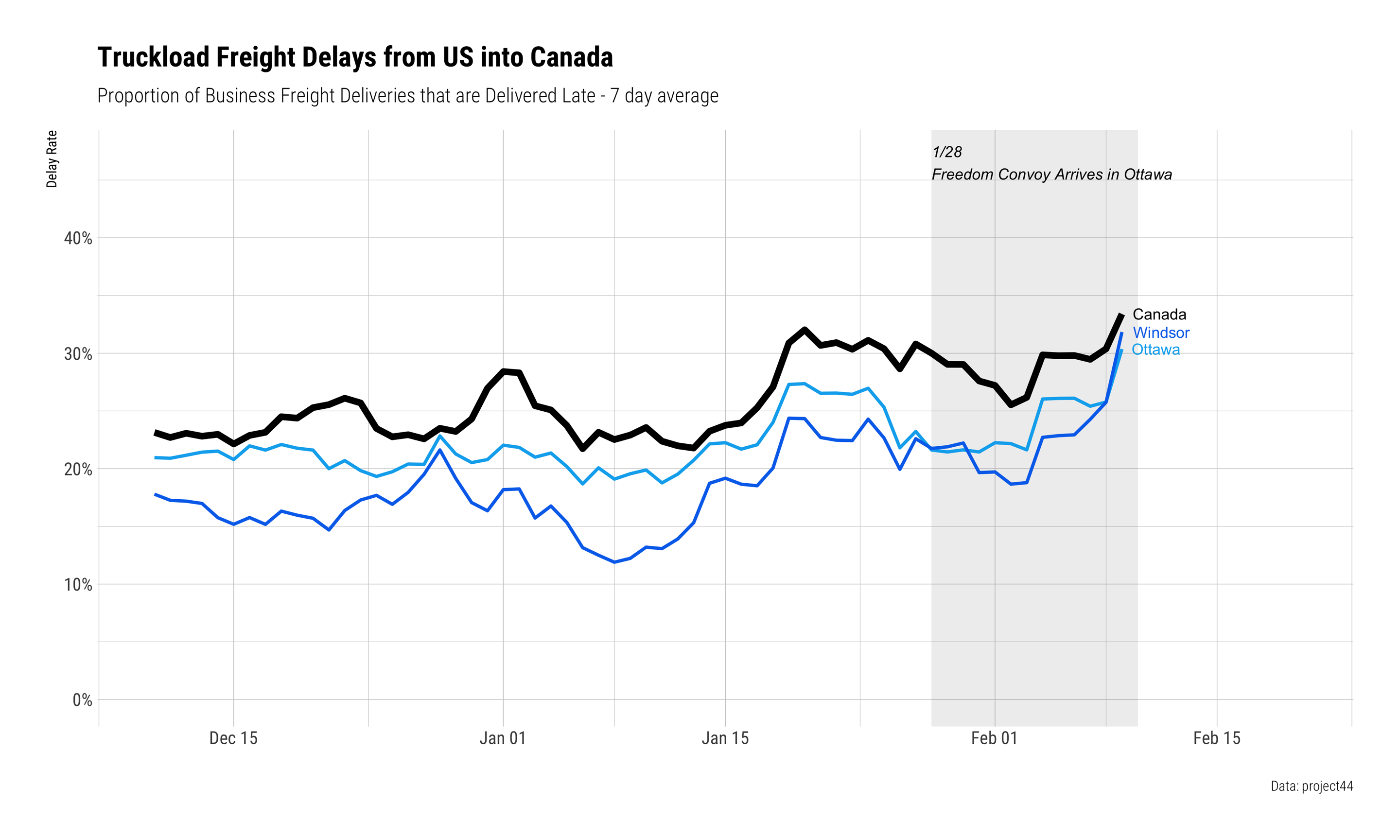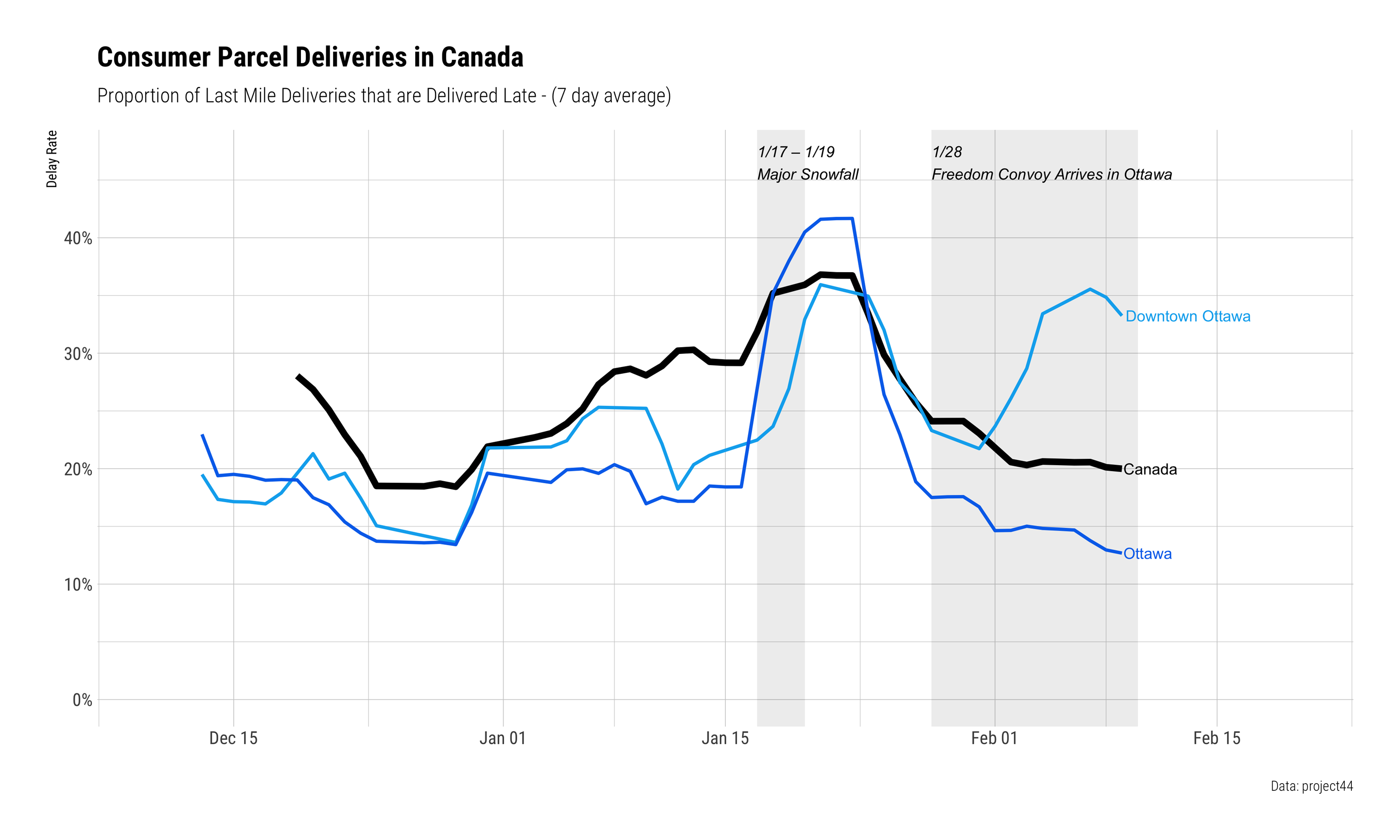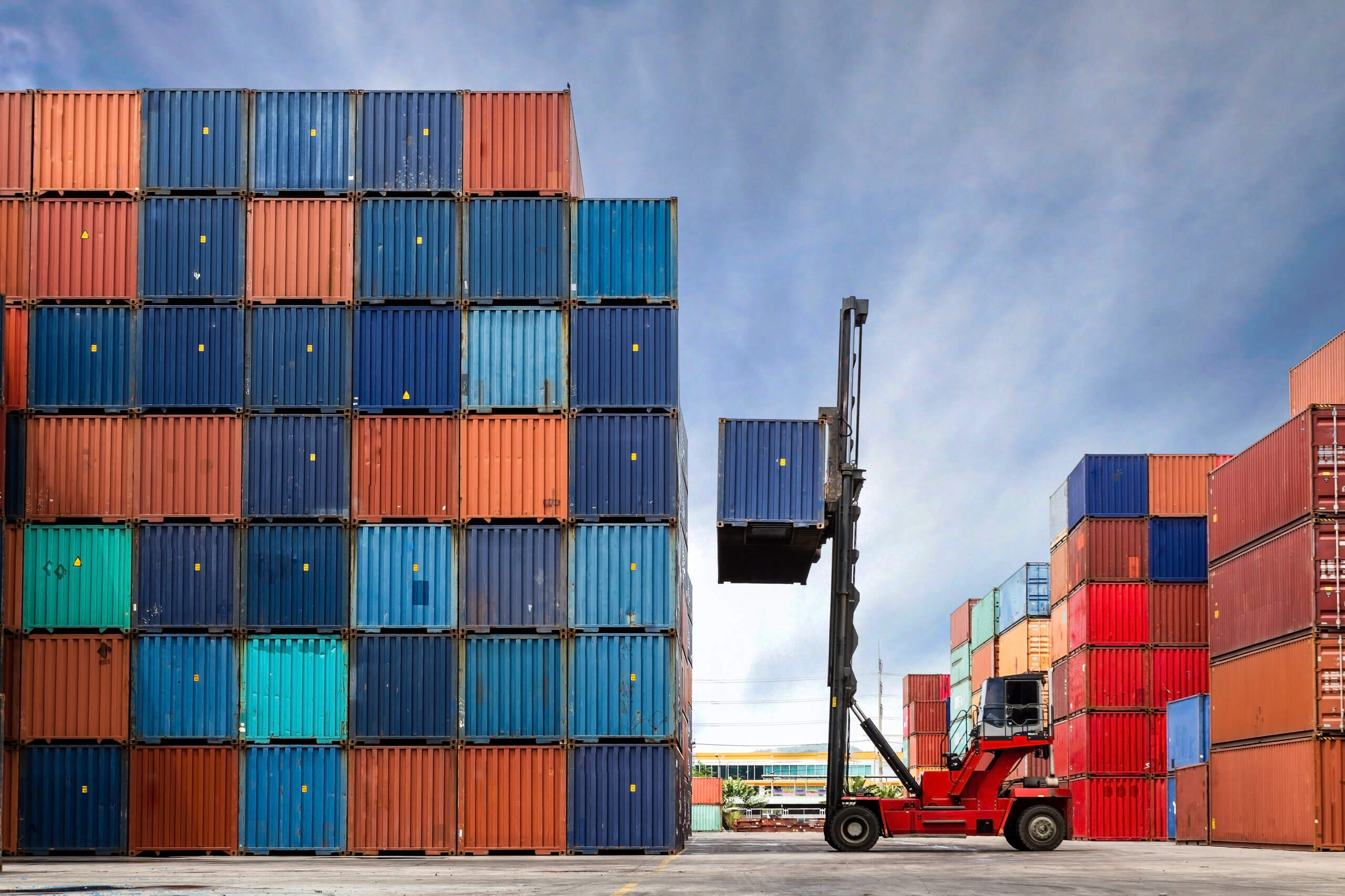The blockades of US-Canadian border crossings by the “Freedom Convoy” trucker protests are just the latest black swan event impacting the supply chain. Since the Covid-19 Pandemic started two years ago, supply chains have been battered by a series of unexpected events from clogged ports to reduced carrier capacity, that have upended normal delivery schedules, impacting inventory management and resulting in product shortages.
Protests Began Over Covid-19 Regulations on Canadian Truckers
As the second week of Freedom Convoy trucker protests continues to disrupt U.S-Canadian trade flows, project44 has decided to publish insights from our extensive carrier network and give a clearer picture of the blockade’s impact on supply chain performance. As the world’s leading real-time transportation visibility platform, project44 tracks multi-modal movements such as truck shipments throughout the United States and Canada as well as other regions of the world.
The so-called Freedom Convoy is blocking key cross-border trucking routes to protest the Canadian government’s Covid-19 vaccination requirements. As of January 15, the Canadian government began requiring all Canadian truckers returning from the United States to be fully vaccinated to avoid a 14-day quarantine period.
Trucker Protests Choke Border Crossings
The most affected border crossing is the Ambassador Bridge, which connects Detroit with Windsor, Canada. The US Department of Transportation has estimated that 30 percent of two-way trade between the US and Canada is shipped on trucks over the bridge. Protesters are also blocking the border crossings at Emerson Point in the province of Manitoba and at Coutts in Alberta.
Companies depending on cross-border trade for just-in-time inventory replenishment are starting to feel the pain of the protest blockades. Ford Motor Co., General Motors, Stellantis, and Toyota this week have all scaled back production at some plants in the cross-border region because of parts shortages.
Although the auto industry is the most impacted by the protests at the moment, continued delays in truck shipments resulting from the blockades could well produce a ripple effect on the US and Canadian economies. Canada is the second largest goods trading partner with the United States while, for Canada, the United States is the largest trading partner.
project44’s Analysis of the Situation
Because of the importance of truck flows to the US-Canadian trade, project44 is studying the supply chain impact from the trucker protests. As of this writing, project44’s Supply Chain Data Insight team analysis shows:
Minimal sizable impact so far on Canadian deliveries and border crossings as a whole
There’s only been a slight increase (1 percent – 9 percent across different regions) to the rate of shipment delays in US-to-Canada cargo truckloads. Most business can accommodate these delays without major disruption. However, delivery delays upwards of 5 hours are having a significant impact on companies using just-in-time manufacturing processes.

However, businesses in the downtown Ottawa area have seen delay rates increase from 23 percent to 35 percent in just the last week. Notice how the Freedom Convoy impact compares to the impact of a major snowfall. While Downtown Ottawa is experiencing simiar delay rates as they did during a mid-January weather event, the greater city and Canada overall are not.

We are not seeing a measurable ripple effect on worldwide supply chains yet. project44 is monitoring dwell times between containers arriving at the ports and being picked up by trucks and currently only seeing a few percentage points of change within the normal realm of day-to-day variance.
Supply Chains Can’t Afford to Be Blindsided By Events
In order to circumnavigate black swan events such as the current trucker protests, companies need to have end-to-end, real-time, multi-modal supply chain visibility of their shipments along with data for increased agility and maneuverability. By having information on in-transit shipments and orders, predictive times of arrivals for deliveries, and insights on carrier and route performance, companies can be proactive in making adjustments to production, distribution, and sales to mitigate increased lead-times for inventory replenishment.
project44 has been the leader in providing companies with the advanced visibility to manage supply chains for resilience. For the latest updates on the Freedom Convoy protest’s impact on the supply chain, visit the Freedom Convoy Tracker page.



